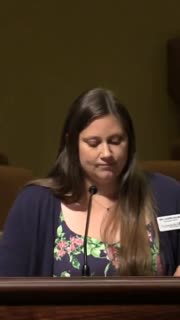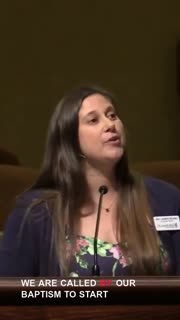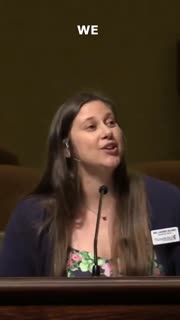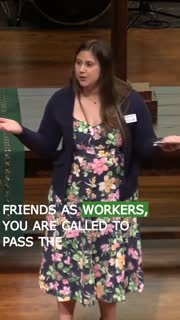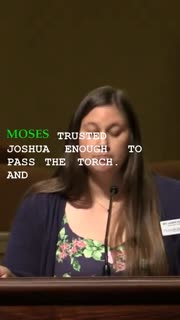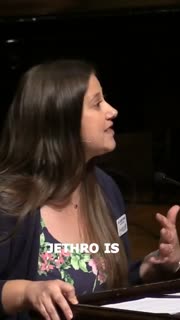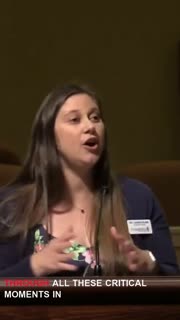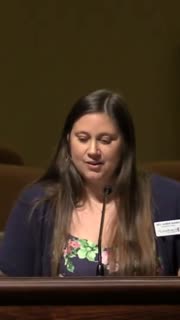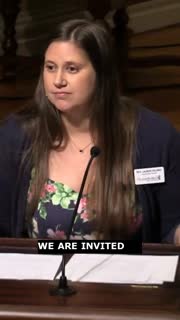Passing the Torch: Mentorship and Leadership in Faith
Devotional
Sermon Summary
Bible Study Guide
Sermon Clips
### Quotes for Outreach
1. "This is a moment of great humility for the coach of the Cal Berkeley team, but it's also a moment that demonstrates the power of passing the torch on to the next group who is qualified and equipped and ready to meet their goal." [34:53] (17 seconds)
2. "We are called by our baptism to start what we cannot finish. We are called by our baptism to start what we cannot finish. And I imagine that might be hard. You have to accept, right? We have been taught to check off our to-do list. Maybe you've been told don't start something that you can't finish." [43:11] (22 seconds)
3. "What we learn as people of faith is that we are not called to just pave our own way but rather to be a part of God's mission. We are called to make a way for those who come and walk beside us or follow us or even those who surpass us and lead us." [46:16] (13 seconds)
4. "I invite you this week to let this not just be something that is extinguished here and you don't think about again, but instead to trust that God's light is going with you, that it is not just a symbol, but the truth that God is in you. The spirit is moving." [49:43] (18 seconds)
5. "Friends as workers, you are called to pass the torch, to trust that God has given you gifts, and you are serving well, but also to seek ways that you can pass on your faith or help raise other people up to take over one day." [01:09:39] (15 seconds)
### Quotes for Members
1. "Moses trusted Joshua enough to pass the torch. And so how do we get there? Of course, we know Moses begins with this burning bush moment where God calls him to go and free God's people from Egypt. And Moses does so, though, of course, unwillingly, protesting, maybe with some imposter syndrome, unsure of how he's going to accomplish this calling." [36:31] (29 seconds)
2. "Jethro is amazed by all that Moses is doing for the Israelites, but he also questions Moses. In Exodus 18, he says, What is this that you're doing for the people? Why do you sit alone and they come and stand around you day and night? And Moses, not quite understanding the question, says, Because the people come to me to ask about God." [39:52] (23 seconds)
3. "Through all these critical moments in the life of God's people, Joshua was there with Moses. And Moses is helping to ensure the following generations would love and fear God. He serves his people by pouring into the life of another. And immediately after Moses' death, Joshua is ready to take the lead." [42:01] (20 seconds)
4. "We know that sometimes God says not yet to us or let someone else do it or prepare the way for them. Sometimes God uses us to prepare the next generation like Moses does for Joshua. We see this in Eli as he tells Samuel to answer the Lord, here I am, when the Lord calls his name." [45:17] (25 seconds)
5. "We are invited to raise up other leaders, to mentor other people, to prepare the path for others, to pass the torch to the next person. This is the part of our calling as people of faith. We need each other and we are called to notice the gifts in one another and to put them to use." [48:25] (20 seconds)
Ask a question about this sermon
1. "This is a moment of great humility for the coach of the Cal Berkeley team, but it's also a moment that demonstrates the power of passing the torch on to the next group who is qualified and equipped and ready to meet their goal." [34:53] (17 seconds)
2. "We are called by our baptism to start what we cannot finish. We are called by our baptism to start what we cannot finish. And I imagine that might be hard. You have to accept, right? We have been taught to check off our to-do list. Maybe you've been told don't start something that you can't finish." [43:11] (22 seconds)
3. "What we learn as people of faith is that we are not called to just pave our own way but rather to be a part of God's mission. We are called to make a way for those who come and walk beside us or follow us or even those who surpass us and lead us." [46:16] (13 seconds)
4. "I invite you this week to let this not just be something that is extinguished here and you don't think about again, but instead to trust that God's light is going with you, that it is not just a symbol, but the truth that God is in you. The spirit is moving." [49:43] (18 seconds)
5. "Friends as workers, you are called to pass the torch, to trust that God has given you gifts, and you are serving well, but also to seek ways that you can pass on your faith or help raise other people up to take over one day." [01:09:39] (15 seconds)
### Quotes for Members
1. "Moses trusted Joshua enough to pass the torch. And so how do we get there? Of course, we know Moses begins with this burning bush moment where God calls him to go and free God's people from Egypt. And Moses does so, though, of course, unwillingly, protesting, maybe with some imposter syndrome, unsure of how he's going to accomplish this calling." [36:31] (29 seconds)
2. "Jethro is amazed by all that Moses is doing for the Israelites, but he also questions Moses. In Exodus 18, he says, What is this that you're doing for the people? Why do you sit alone and they come and stand around you day and night? And Moses, not quite understanding the question, says, Because the people come to me to ask about God." [39:52] (23 seconds)
3. "Through all these critical moments in the life of God's people, Joshua was there with Moses. And Moses is helping to ensure the following generations would love and fear God. He serves his people by pouring into the life of another. And immediately after Moses' death, Joshua is ready to take the lead." [42:01] (20 seconds)
4. "We know that sometimes God says not yet to us or let someone else do it or prepare the way for them. Sometimes God uses us to prepare the next generation like Moses does for Joshua. We see this in Eli as he tells Samuel to answer the Lord, here I am, when the Lord calls his name." [45:17] (25 seconds)
5. "We are invited to raise up other leaders, to mentor other people, to prepare the path for others, to pass the torch to the next person. This is the part of our calling as people of faith. We need each other and we are called to notice the gifts in one another and to put them to use." [48:25] (20 seconds)
